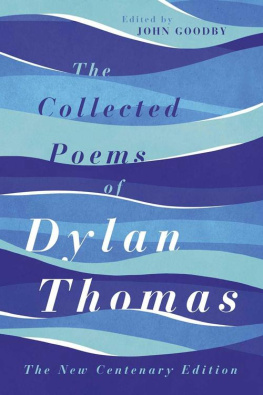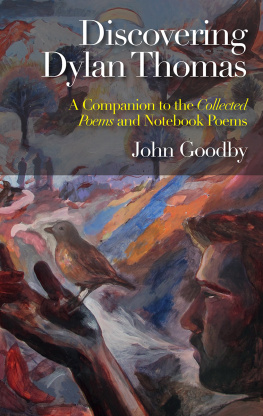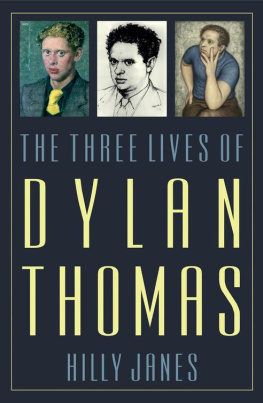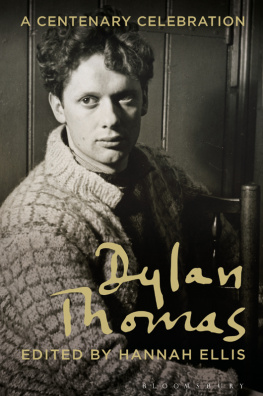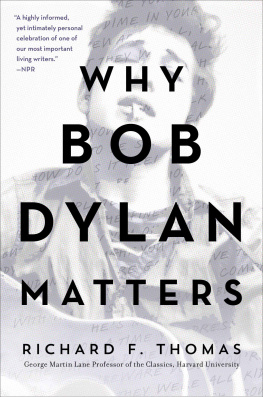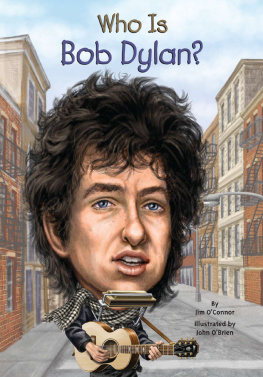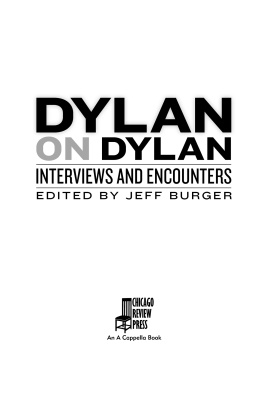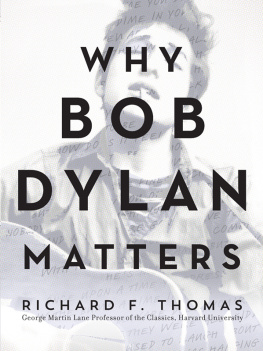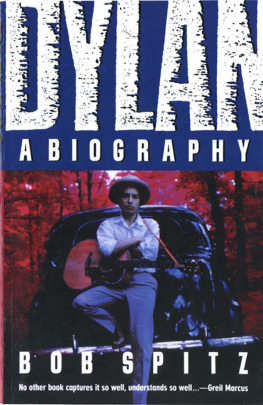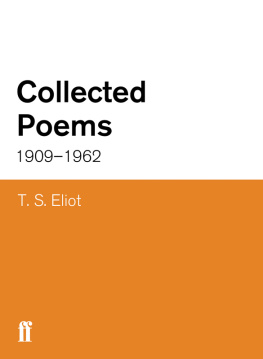Dylan Thomas - The Collected Poems of Dylan Thomas - The New Centenary Edition
Here you can read online Dylan Thomas - The Collected Poems of Dylan Thomas - The New Centenary Edition full text of the book (entire story) in english for free. Download pdf and epub, get meaning, cover and reviews about this ebook. City: London, year: 2014, publisher: Orion, genre: Detective and thriller. Description of the work, (preface) as well as reviews are available. Best literature library LitArk.com created for fans of good reading and offers a wide selection of genres:
Romance novel
Science fiction
Adventure
Detective
Science
History
Home and family
Prose
Art
Politics
Computer
Non-fiction
Religion
Business
Children
Humor
Choose a favorite category and find really read worthwhile books. Enjoy immersion in the world of imagination, feel the emotions of the characters or learn something new for yourself, make an fascinating discovery.
- Book:The Collected Poems of Dylan Thomas - The New Centenary Edition
- Author:
- Publisher:Orion
- Genre:
- Year:2014
- City:London
- Rating:3 / 5
- Favourites:Add to favourites
- Your mark:
- 60
- 1
- 2
- 3
- 4
- 5
The Collected Poems of Dylan Thomas - The New Centenary Edition: summary, description and annotation
We offer to read an annotation, description, summary or preface (depends on what the author of the book "The Collected Poems of Dylan Thomas - The New Centenary Edition" wrote himself). If you haven't found the necessary information about the book — write in the comments, we will try to find it.
Dylan Thomas: author's other books
Who wrote The Collected Poems of Dylan Thomas - The New Centenary Edition? Find out the surname, the name of the author of the book and a list of all author's works by series.
The Collected Poems of Dylan Thomas - The New Centenary Edition — read online for free the complete book (whole text) full work
Below is the text of the book, divided by pages. System saving the place of the last page read, allows you to conveniently read the book "The Collected Poems of Dylan Thomas - The New Centenary Edition" online for free, without having to search again every time where you left off. Put a bookmark, and you can go to the page where you finished reading at any time.
Font size:
Interval:
Bookmark:
JOHN GOODBY

I gratefully acknowledge the help and encouragement given me in the preparation of this edition by the following: my family, Nicola, Kate and George Goodby; friends, colleagues, students and fellow-Dylanites, including Rhian Bubear, Hannah Ellis, Aeronwy Thomas-Ellis, Victor Golightly, Barbara Hardy, Ivan Phillips, Neil Reeve, Jeff Towns, Steve Vine, Chris Wigginton and Dave Woolley. Of the institutions and individuals within them who have made this edition possible, I would like to thank the following: Elaine Canning and Chris Williams of RIAH (Research Institute for Arts and Humanities), Swansea University; Sian Bowyer and the staff at the Manuscripts Collection at the National Library of Wales, Aberystwyth; the staff of the Department of Manuscripts at the British Library, St Pancras, London; Michael Basinski and the staff of the Special Collection Library of the State University of New York at Buffalo; Rick Watson and the staff of the Research Library at the Harry Ransom Research Center at the University of Texas at Austin; the staff of Swansea University Library; the Dylan Thomas Society of Great Britain; M. Wynn Thomas and CREW (Centre for Research into the English Literature and Language of Wales), Swansea University. Thanks are due to Swansea University for sabbatical leave in 201011, during which a good deal of the preparatory work for this edition was carried out, and to the AHRC (Arts and Humanities Research Council of Great Britain) for the award of a Research Fellowship for the academic year 201213, during which the edition was prepared.
It is hard to know where my interest in Dylan Thomass work began, and whether anyone in particular should be thanked for pushing it my way. However, many years ago I had the good fortune to be taught by an English master from Swansea. Peter Hellings had been a promising young poet when war broke out in 1939, and Thomas had even name-checked him approvingly in a letter to Vernon Watkins in 1940 Peter Hellings got something, hasnt he? Got something, my God! Am I trying to be a Little Master? Hellingss literary career, interrupted by the war and his work, never quite matched this flying start; but as a teacher he kindled in his pupils a love of literature, which included lending me the work of Dylan Thomas. When the chance arose for me to organise a conference on Thomas in 1998, this early memory was crucial in my acceptance, and the experience of the conference led to the work that gave rise to this edition. So while it may not be appropriate for a work such as this to be dedicated to any person but the poet himself, I hereby acknowledge a very particular debt of gratitude. If I never quite measured up to the aspirations my teacher entertained for me all those years ago, I hope this edition can nevertheless be taken as a fitting, if belated, tribute to his inspiration and his memory.
Dylan Thomas is still valued today as the creator of one of the most distinctive and exciting of all poetic styles sensuous, playful, rhythmically forceful and subtly musical, full of earwormmemorable lines and passages. He is that rarest kind of author, one who, like Hopkins, Shakespeare and Joyce, permanently bent the iron of English and expanded our sense of its possibilities. Thomass broad appeal rests on his having written poetry which is considered to be poetic in the sense the word is popularly understood that is, as writing distinguished from other kinds by its gestural qualities, its staking of everything on the power of its linguistic invention, music and imagery. This emphasis makes his work stand out from most twentieth-century English poetry, which is distinguished by a preference for plainer styles. A handful of Thomass poems, among them Fern Hill and Do not go gentle into that good night, remain anthology favourites, and are among the best-known poems in the language. Other works, notably his radio play for voices, Under Milk Wood, are established classics, and his writings have inspired work in, and been adapted for, many different media rock, jazz and classical music, prints and paintings, film and television, cartoon, opera and the stage. Today, almost everything Thomas wrote is in print. He is one of the most Googled poets on the worldwide web, and the recent plethora of books and exhibitions, radio and television programmes to mark the centenary of his birth in 2014 all testify to the continuing resonance of his work over sixty years after his death.
Thomass popularity is also, of course, indissolubly linked to his life and early death in New York in November 1953, at the age of thirty-nine. His meteor-like passing, flaring up in the grey, conformist Cold War world, immediately established him in the popular imagination as both rebel and victim, investing him with the aura of a folk hero (by 1962, for example, his spoken-voice LPs had sold over 400,000 copies). This was just the beginning of his transformation into a cultural icon, since his exuberant style and exemplary bohemian dissolution led to his adoption by the 1960s counter-culture; the favourite author of The Beatles, Peter Blake and Richard Burton, he lent his name to Bob Dylan, and became the tribal bard in Marshall McLuhans electronic global village. He is still, indeed, the rock-, film-star and celebrity poet of choice, cherished by figures as diverse as Patti Smith, ex-US president Carter and Pierce Brosnan.
Yet Thomass unusual visibility, as poets go, is qualified by the divergence between his popular reputation and his critical one. Until about forty years ago, these more or less matched each other. Despite attacks on his work, often by the Movement writers of the 1950swhodefinedthemselvesagainsttheirlarger-than-lifepredecessor, many leading critics rated Thomas highly. He was honourably mentioned in Alvarezs seminal anthology The New Poetry (1962), appeared as a central figure in histories of British poetry, and was acknowledged as an influence on poets such as Sylvia Plath, Ted Hughes and W. S. Graham. Despite the continued suspicion of little-England and Welsh nationalist critics, by the twentieth anniversary of his death Dylan Thomas seemed to have found a place in the canon. But then, in the mid-1970s, what the US poet-critic Karl Shapiro called his impossible audience, of both academic and general readers, suddenly split. In Wales, critical activity continued, but elsewhere it fell away sharply, his critical reputation plummeting even as the popular one remained buoyed by the legend. In accounts of twentieth-century poetry he swiftly became marginal. From having a whole chapter devoted to him in A. T. Tolleys Poets of the Thirties of 1975, for example, he came to merit just a few passing (and derogatory) references in Valentine Cunninghams Writers of the Thirties of 1988.
This demotion needs to be set in context. In part, it reflected a natural adjustment: because he was hailed as a cultural icon, Thomas was over-exposed in the years following his death. However, this does not explain the depth and length of the neglect. A more likely cause was the re-evaluation of the 1930s as the Auden decade by anglocentric critics in the late 1970s, and the consequent need to airbrush Thomas, Audens main challenger for supremacy, from the period. Another factor was the sea-change in British poetic culture, one of the many instances of conservative backlash in British society in the late 1970s and 1980s. This led to a polarisation between modernist-influenced poetry, and an anti-modernist poetry of a plainer kind, with the latter coming to exclude the former kind from almost all mainstream attention and reward. A scene that had once taken Auden and Thomas seriously, and (just) tolerated poetry influenced by both Charles Olson and Philip Larkin, shrank in scope. Thomass offence was not just that he had modernist roots, however. He was also too excessive, his work too bound up in the legend, too anomalous to be easily pigeonholed. He had written Altarwise by owl-light, one of the most formidably difficult poems in English, and Fern Hill, once voted fourth-favourite poem ever by listeners of BBC Radio Fours Poetry Please. Although, in the 1950s and 1960s, even the densest of Thomass poems had been unravelled, in a divided poetry world this kind of divergence looked less like versatility than incoherence. It was easier to focus on an unrepresentative handful of late lyrics and argue that Thomas was a limited poet, and the bulk of his work merely obscure. It is this partial, simplified and rather sentimentalised version of Thomas which is prized, patronised or ignored today.
Font size:
Interval:
Bookmark:
Similar books «The Collected Poems of Dylan Thomas - The New Centenary Edition»
Look at similar books to The Collected Poems of Dylan Thomas - The New Centenary Edition. We have selected literature similar in name and meaning in the hope of providing readers with more options to find new, interesting, not yet read works.
Discussion, reviews of the book The Collected Poems of Dylan Thomas - The New Centenary Edition and just readers' own opinions. Leave your comments, write what you think about the work, its meaning or the main characters. Specify what exactly you liked and what you didn't like, and why you think so.

